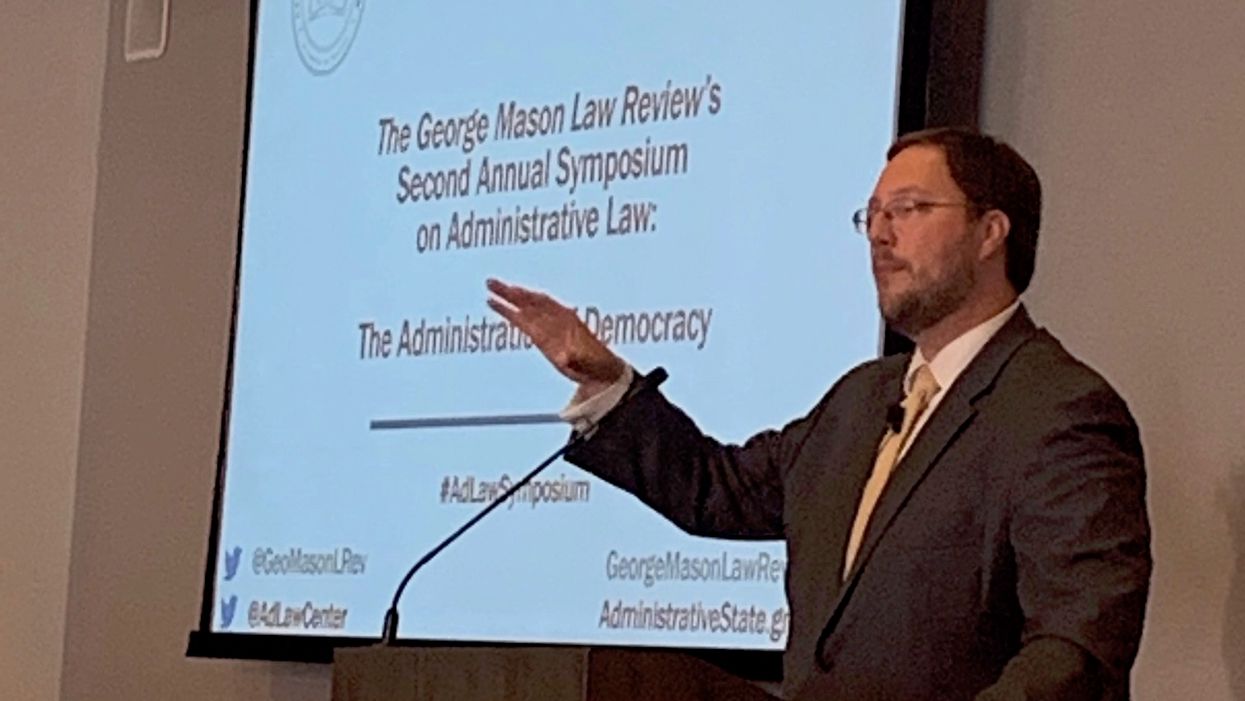Call it the contrarian conference.
While most in the democracy reform movement often find uniform agreement when defining the problems within — and solutions to — the U.S. political system, a Friday forum provided some alternative outlooks.
The Federal Election Commission is a feckless agency frozen by partisan gridlock? Well, not really, one expert argued at the symposium led by the George Mason Law Review.
Independent commissions are the answer to solving political gerrymandering of legislative districts? Well, maybe not, another panelist said.
Scholars had been invited to submit papers that were the basis for their presentations at the event. For those who couldn't attend, those papers will be published in the upcoming edition of the review, published by students of the Antonin Scalia Law School at George Mason University.
During the first panel, a discussion of the administration of campaign finance law, the guest speakers sparred over the nature of FEC, which was created with six commissioners: three Republicans and three Democrats. Critics often say it was designed to fail.
Professor Bradley Smith of the Capital University Law School in Columbus, Ohio, ticked through a list of derisive words used to describe the FEC — from "lap dog" to "pathetic" to "the little agency that can't."
But Smith, who served on the commission from 2000 to 2005, said he believes Congress wanted to make sure that one party did not use the FEC to run roughshod over the other. And he said the number of decisions in which the commission splits on party lines and can't reach a decision is not as great as what many report.
"The fact is this is not true," said Smith, who studied the percentages of decisions that were stymied by split votes.
Panelist Trevor Potter, president of the Campaign Legal Center and one-time FEC chairman, countered that some of Smith's statistics were misleading because many of the votes taken are non-controversial. On major enforcement and policy issues, he said, the FEC has gridlocked most of the time.
Currently, the FEC is not able to conduct any official business because the resignation of a commissioner in August left the agency without a quorum.
In another session, Jason Torchinsky, a partner in a Washington, D.C. law firm where he specializes in campaign finance and other election issues, argued that independent redistricting commissions are not the panacea that advocates believe they will be.
Torchinsky, who researched the different types of independent commissions, said they don't necessarily take politics out of the process of drawing legislative maps. He called that idea "a lot of smoke and mirrors from the progressive left."
He also raised the issue of whether political accountability to the voters is lost when redistricting is taken away from elected officials.
Other speakers during the daylong symposiums included:
- Professor Richard Pierce Jr., of the George Washington University Law School, who called for removing limits on donations to candidates, which he hoped would steer money away from political action committees. Pierce also called for improving the quality of disclosure so people can more easily follow who is giving to a candidate.
- Bob Bauer, former counsel to President Barack Obama and professor at the New York University School of Law, who said the country does not spend enough time or resources on improving the election process. "This country does not take elections seriously enough," he said.




















